Big Red Book
Celebrating television's This Is Your Life
John VAN WEENEN MBE (1941-)
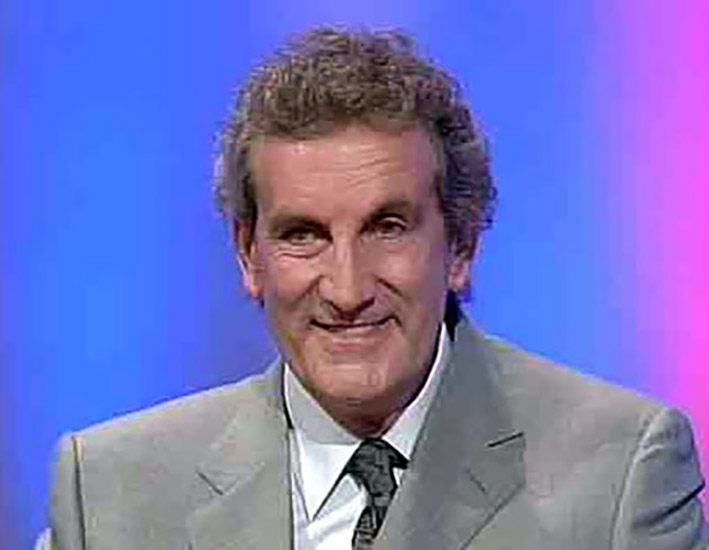
THIS IS YOUR LIFE - John van Weenen, karateka and humanitarian, was surprised by Michael Aspel during a martial arts training session in a sports centre in Flitwick, Bedfordshire.
John developed a passion for karate while living in Australia in 1964 and became one of the UK's top karate experts after studying in Japan under the great Master Hirokazu Kanazawa. He established one of the first karate clubs in the UK, which later grew into a chain of clubs.
His previous charity work led him to act after seeing a BBC news report in September 1991 from Albania about the effects of the end of communism on the country's children. The following year he set up Taskforce Albania and organised the largest aid convoy to leave Britain since the Second World War. By 2001, the Taskforce has led 53 dangerous missions across the Balkans to deliver more than £7m worth of aid for sick and desperate children.
programme details...
- Edition No: 1066
- Subject No: 1041
- Broadcast date: Wed 21 Feb 2001
- Broadcast time: 8.00-8.35pm
- Recorded: Mon 18 Dec 2000
- Venue: Teddington Studios
- Series: 41
- Edition: 13
- Code name: Beetle
on the guest list...
- Irene Leslie
- Alan Blake
- Janice Brown
- Jeff - brother
- Garry - brother
- Margo - sister
- Linda - sister
- Tanya - daughter
- Mansel - son
- Haydn - son
- Jane - wife
- Terry O'Neill
- Prof Norman Williams
- Toshiko Whitcher
- Bill Hamilton
- Bhasker Solanki
- Tim Eyrl
- John Gurrin
- Charles Hutton
- Anila Bido
- Barbara Gallakye
- Dr Lindita Agolli
- Dr Sokol Agolli
- Col John McGough
- John Dawson
- Bob Poynton
- Jed Ford
- Enkelejda Fergali
- Sali Berisha Filmed tributes:
- Norman Wisdom
- Earl Spencer
production team...
- Researchers: Deborah Cowan, Ruth Malone
- Writer: Joe Steeples
- Director: John Gorman
- Associate Producer: Helen Gordon-Smith
- Executive Producer: John Longley
- Series Producer: Jack Crawshaw
- Producer: Sue Green
- names above in bold indicate subjects of This Is Your Life
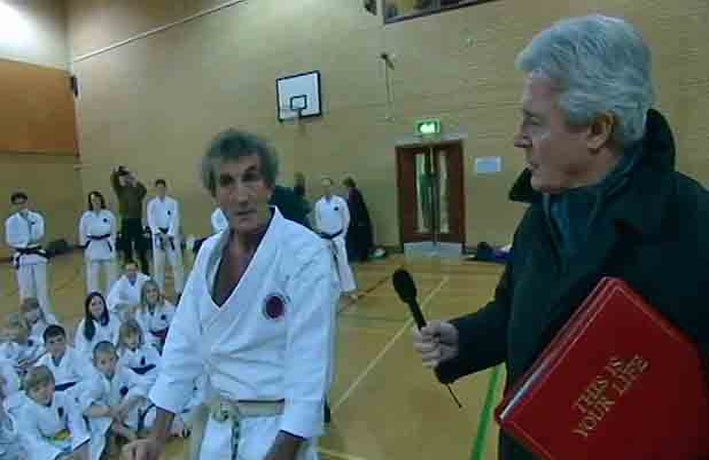
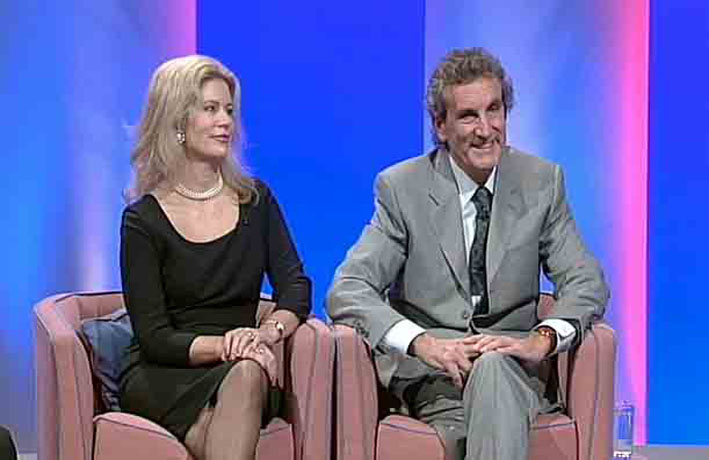
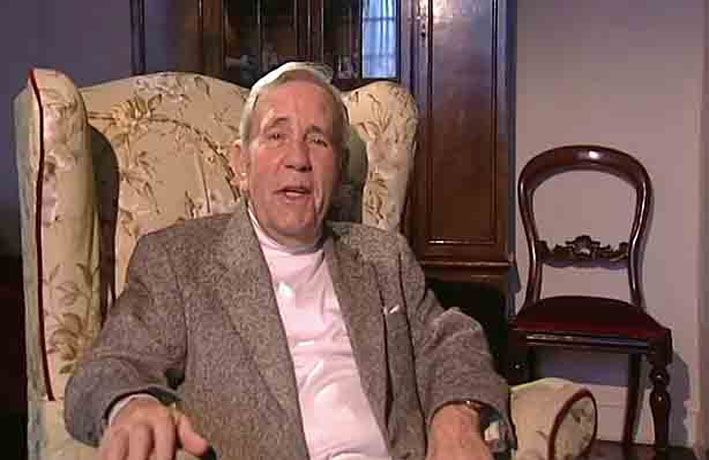
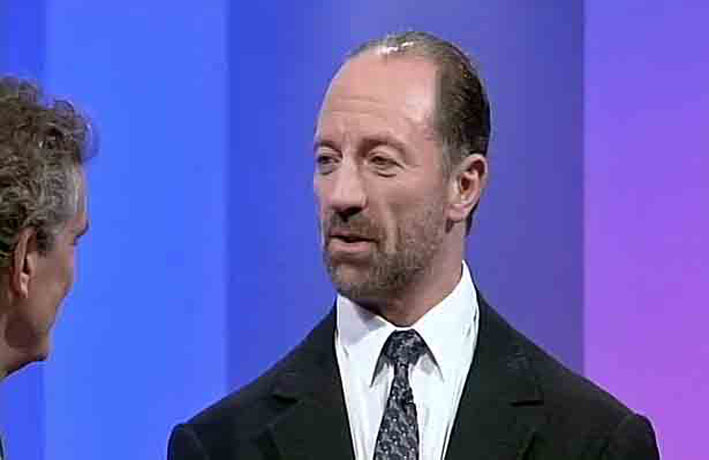
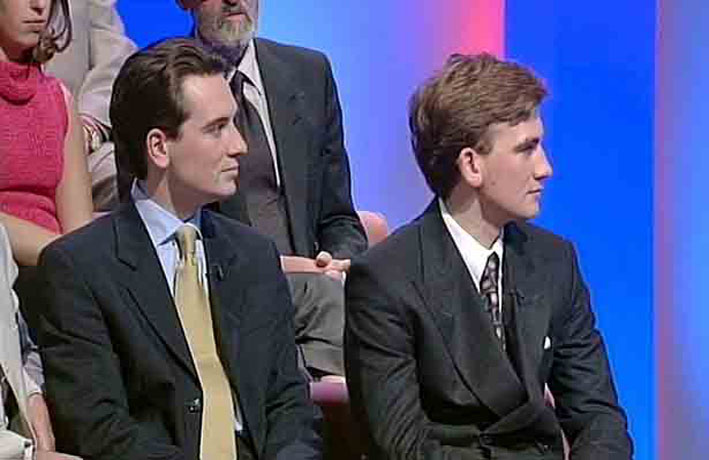
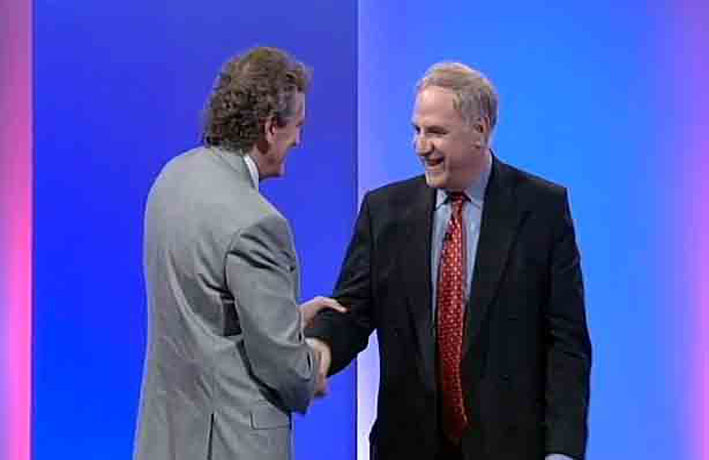
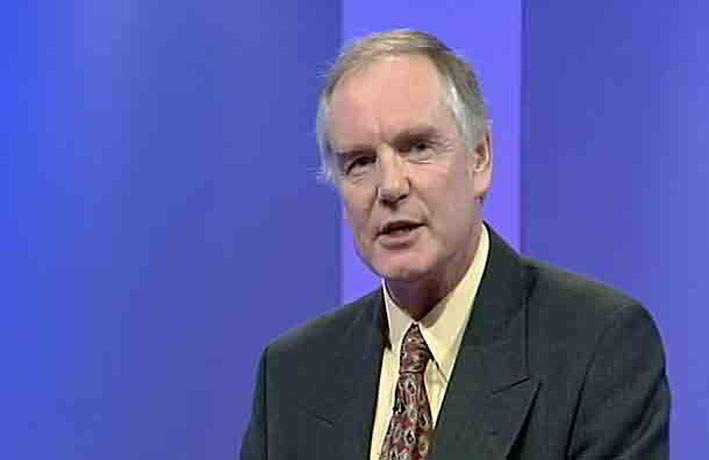
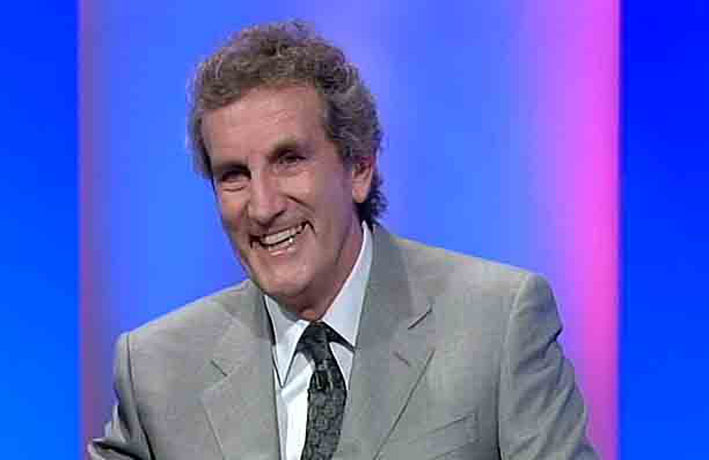
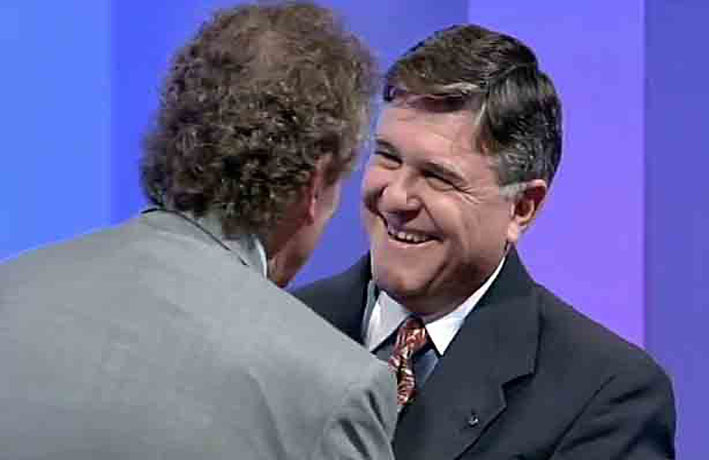
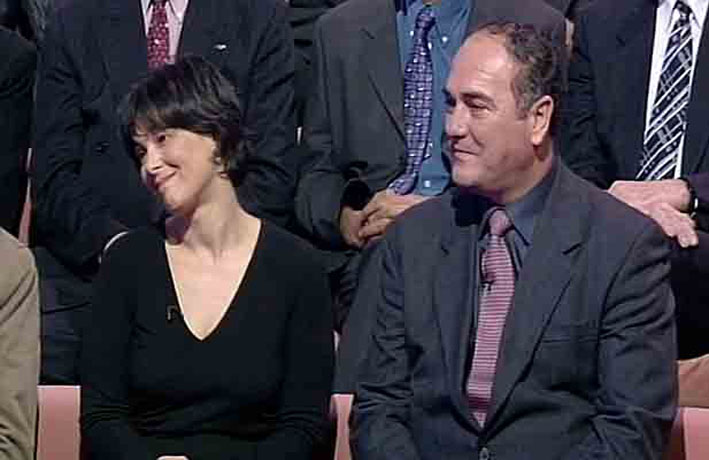
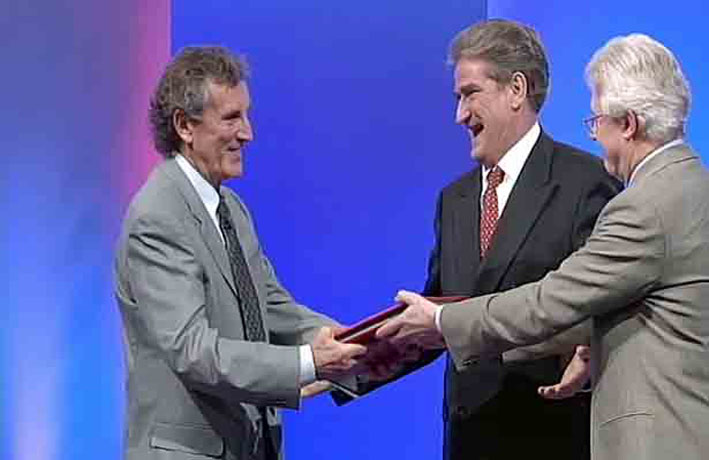
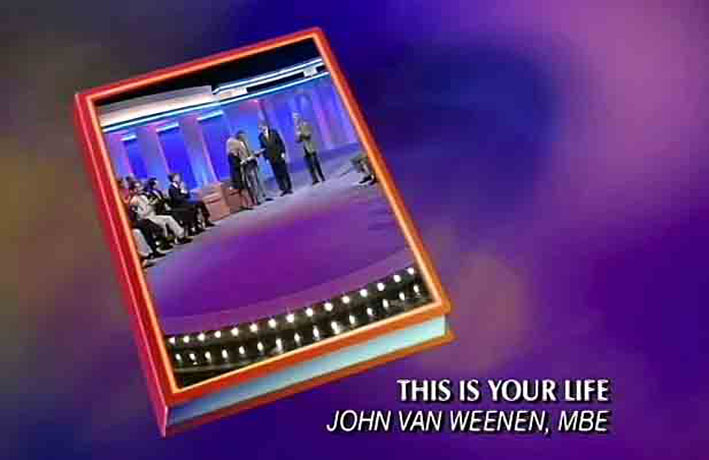
Screenshots of John van Weenen This Is Your Life
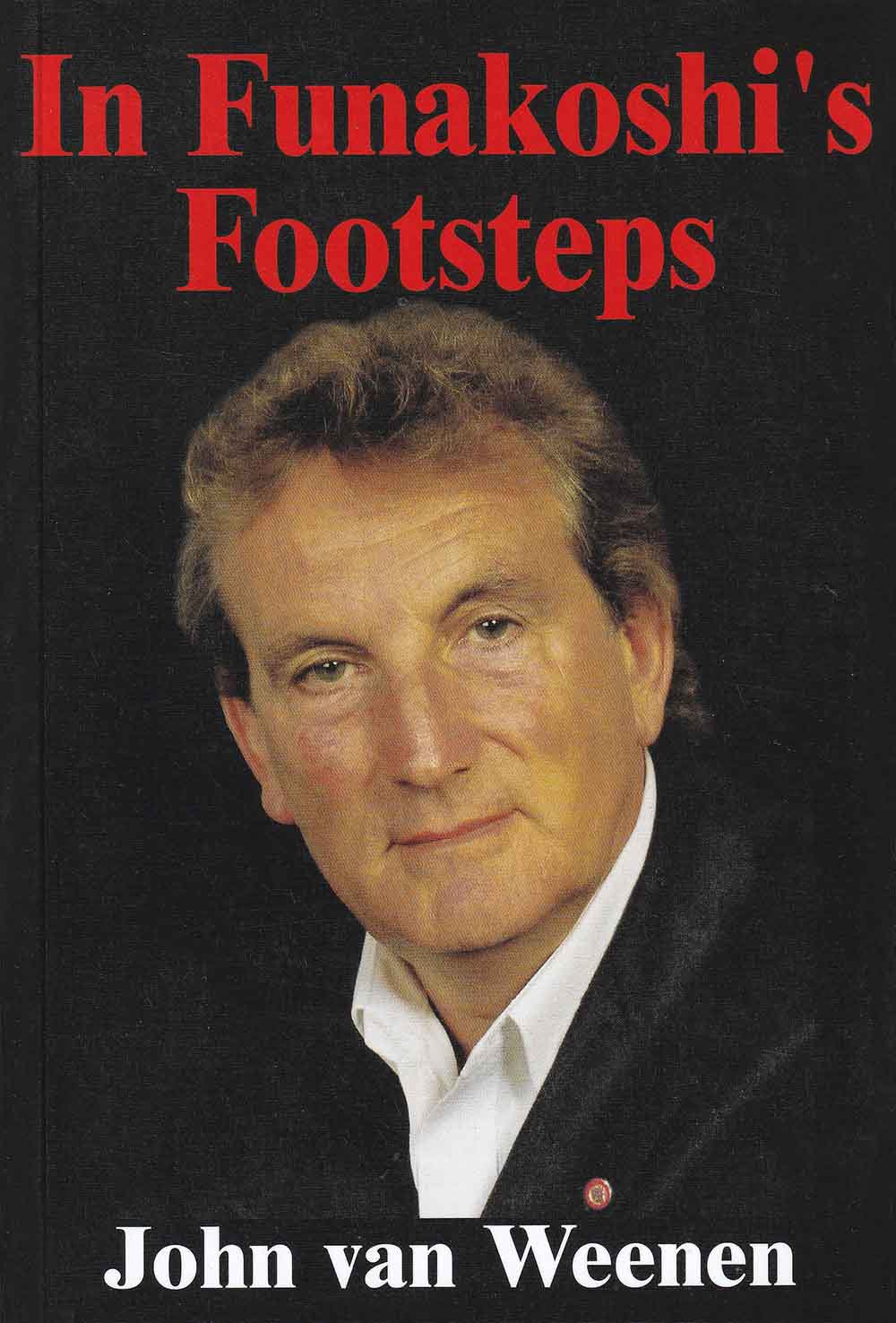
My father loved to play golf, and was actually quite a useful player. For many years he was a member of Whitewebbs Golf Club in Enfield, prior to which he had spent much of his spare time working as a golf caddy. He caddied for many famous golfers of the time when they visited the UK — Ben Hogan, Arnold Palmer, Gary Player, Jack Nicklaus and Walter Hagan to name just a few. However, his long term allegiance was to Charles Whitcombe, who played locally at Bush Hill Park Golf Club. Having observed many of the 'greats' of his time, in his later years he turned his hand to teaching the game. One of his pupils was T. Leslie Jackson, the producer of What's My Line and This Is Your Life. 'Jacko', as he was known to his friends, would come round to our house and the two of them would go off to Whitewebbs. My father also taught TV host Eamonn Andrews, and due to the connection with This Is Your Life, whenever there was anyone really interesting on the programme, my family would be given tickets. After a programme, there was always a party, and we'd go along as Leslie Jackson's special guests. My mother never went, she wasn't a social animal, but I often did — to the Television Centre in Shepherd's Bush.
Looking back, I suppose I saw some fifty programmes. I met many well-known figures, including actress Olivia de Havilland; singer Petula Clark; Gilbert Harding the TV personality, and my old karting supporter, Freddie Mills. I'd talk to them all. There I was with not a penny in the world, driving to Shepherd's Bush in an old beaten-up brown 'Singer', speaking to all those famous people. I thought Olivia de Havilland was a special person, a really charming lady. I also met her father, Sir Geoffrey, the famous aircraft designer and director of the De Havilland Aircraft Company, which produced the Tiger Moth, Mosquito and Comet aircraft. I met Sir Geoffrey a couple of times not long before he died in 1965.
The problem I couldn't overcome was that I never had anything these people wanted, but attending so many This Is Your Life parties gave me an opportunity to 'size them up', to see what was special about them, how they ticked, and gain a better insight into how the 'other half' lived. I never went in for social climbing per se, but I soon realised that it was a lot easier to succeed in the company of others than in isolation.
This Is Your Life was broadcast on a Monday evening. As usual, I had gone to my Flitwick dojo, parked the car, walked into the sports centre and changed to take the beginners' class, composed mainly of children. During the lesson, I was demonstrating kihon-ippon-kumite (basic one attack sparring) - when a cameraman to my left caught my attention. I then sensed someone close to me, slightly behind, again on the left-hand side, and I turned quite sharply to see a man dressed in an overcoat. I was taken aback, because you don't expect warmly dressed people to walk towards you in a karate dojo. He was carrying both a microphone and a concealed red book. I was dazed at the time; I didn't know what was going on, although I thought I recognised the mystery man's face. Then suddenly I realised it was Michael Aspel, the show's presenter. The unexpected always takes us by surprise and Michael's face quite simply had not registered.
Within fifteen minutes, I had showered and changed out of my 'go' and was being chauffeur driven to London in a BBC Jaguar. On the journey to the studio, all I could do was reflect on all the times I used to go see 'live' This Is Your Life forty years before as an observer of the rich and famous. I wonder what my parents would have thought of it all? For three hours I was 'detained' in the hospitality suite and prepared for the show. A female 'guard' stood outside my room, in case I should decide to abscond. Certainly, in the suite I had everything necessary — even a bathroom — and a delicious array of food and drinks, including champagne.
At 10.00 p.m. I was allowed out. The audience had been rehearsed and primed. This was it! I was taken down staircase after staircase until I came to the back of the set. Here I was given a microphone and Michael Aspel was there to greet me. We walked over and stood by the doors, ready for them to open. Then the famous music started, the doors opened, and we were met with applause.
A multitude of faces stared at me. I was disorientated; I knew them, yet I didn't know them. After I had walked through the doors, down the steps and found myself at audience level, I put my feet together and bowed towards the stage, as if bowing into a dojo. The bow was a completely sub-conscious act; I hadn't planned to do it I suppose it was an acknowledgement, a 'thank you for being part of my life,' a 'thank you for coming,' to all the guests.
So the show began. Faces I hadn't seen for years appeared. I felt detached from reality, as if I wasn't really there. After Jane, Haydn and Mansel came in and the first person to give a tribute, on film, was Sir Norman Wisdom. He said some kind things, as did all the guests. Then came Terry O'Neill, followed by Professor Williams, Bill Hamilton, Tim Eyrl, John Gurrin, Anila Petrit Bido (one of the Albanians with eye problems helped by TFA), Charles Hutton, and Drs. Lindita and Sokol Agolli, both anaesthctists, who had flown in from Albania. Then came Col. John McGough, who was followed by a contribution from Earl Spencer filmed in South Africa, and Enkelejda Fergali from the British Children's Library of Tirana walked in.
Amongst the selected guests were karateka Bob Poynton, Paul Perry and Greg Durant, but the show concentrated on my charity work. Jane, Tanya, Haydn, Mansel and my brothers Garry and Jeff, all spoke too, as did Jed Ford. The final guest was Albania's former President, Dr. Berisha, who had flown in especially for the event. The show was followed by a fabulous party.
Although it was a wonderful evening, when I learned that the BBC had spent £350,000 to produce it, it made me think. Without wishing to seem ungrateful, I would have much preferred it if they'd given me the money to spend on the Albanian children. Think of the eye surgery that could have been performed with that amount of money!
I had hoped that the publicity created by the show might produce some revenue for TFA, but as far as generating extra funding was concerned, nothing really happened nationally, nor locally, despite front-page coverage in the local press and elsewhere. Albania it seemed, was sadly becoming a distant and painful memory for the British public.
Later, when I watched the programme, I thought the BBC had done a professional job; it was well produced. I liked the music accompanying the film clips of the Albanian children from Bill Hamilton's reports — that was very effective. They also showed film of the TFA convoys that brought memories flooding back; it was a very emotional experience for me.
Series 41 subjects
Matthew Pinsent | Todd Carty | Vinnie Jones | Donald Woods | Linda Lusardi | Dorothy Tutin | Paula Tilbrook | John HumphrysAndrew Davis | James Ellis | Sue Jenkins | Geoffrey Hughes | John van Weenen | Charles Dance | Mick Channon
Jonathan Ross | Simon Rouse | Midge Ure | John Barnes | Paul Jones | Patrick Robinson | Jim Shekhdar
Valerie Singleton | Darren Gough | Kevin Woodford | Richard Stilgoe